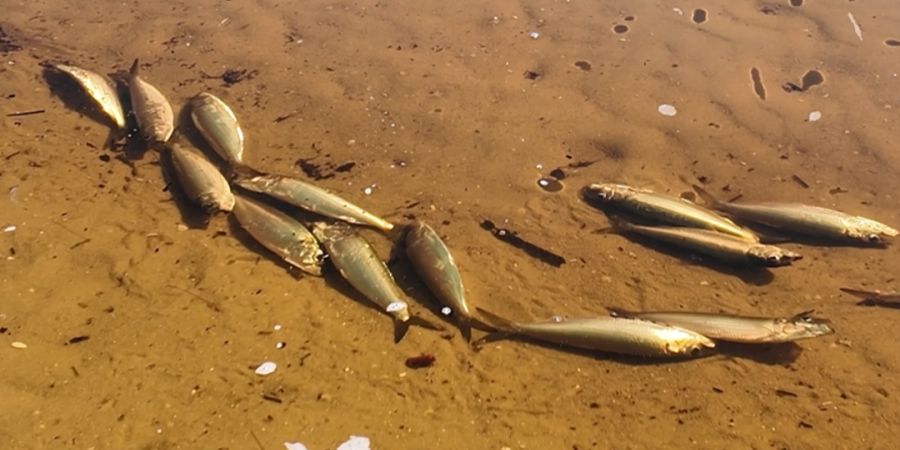
A fish kill in the lower Swan River had affected mainly scaly mackerel
Update: Tuesday 9 September 2025
DBCA has finalised clean-up activities associated with the recent fish kill in the lower Swan River but continues to build understanding of the event.
It is believed that strong freshwater flows and diminishing oxygen conditions at depth impacted marine species (primarily scaly mackerel) occupying the lower river.
Harmful algal species are not thought to have been a causal factor, but the department is waiting for the results of fish pathology testing undertaken by DPIRD diagnostic and laboratory services.
Effort to date has focussed on understanding the cause of the event, surveillance, and clean-up, with more than 6000 dead fish collected and safely disposed of by DBCA staff with assistance from local governments last week.
While the fish-kill incident is now considered to be over, DBCA continues to closely monitor environmental conditions in the Swan Canning Riverpark.
As a general rule, the Department of Health advises against swimming in the waterway within 3 days of heavy (>10mm) rainfall events (see: Tips for healthy swimming)
DBCA encourages the public to remain alert and report sluggish or dead fish in the Swan Canning Riverpark to Fishwatch on 1800 815 507.
Reports should include photos and the location of the dead fish including GPS coordinates, number of dead fish and if possible, the species affected.
______________________________________________
Update: Thursday 4 September 2025
Water testing commenced yesterday and has continued today.
Preliminary results indicate low oxygen levels at depth in parts of Melville Water, alongside a pronounced halocline (sharp change in salinity) caused by freshwater inflow, as a result of recent rainfall.
Early algal analysis suggests the recent fish kill is not the result of a harmful algal bloom, although further results are pending.
Dead fish continue to be collected and are predominantly scaly mackerel. While the final count is yet to be confirmed, more than 5000 fish have been retrieved and disposed of so far.
Continued rainfall is ultimately beneficial for the estuary system, but its short-term impact is difficult to predict. Increased freshwater flow may extend the period of impact on marine species.
________________________________________________
The Department of Biodiversity, Conservation and Attractions is responding to a fish kill in the lower Swan River in the vicinity of Bicton, Point Walter, Mosman Park, Dalkeith and North Fremantle.
Initial reports suggest there may be hundreds of dead fish.
The majority of species affected appear to be marine, including scaly mackerel and some crab and starfish species.
Samples of fish and water have been collected for testing, and water profiles are being taken. Water samples will be tested for any harmful algal species.
Recent strong rains and resultant freshwater flows are thought to have contributed to this event.
The best way the public can help is by immediately reporting sluggish or dead fish in the Swan Canning Riverpark to FishWatch on 1800 815 507. Reports should include photos and the location of the dead fish including GPS coordinates, number of dead fish and if possible, the species affected.
The public should avoid collecting dead or dying fish for consumption, bait or pet food.